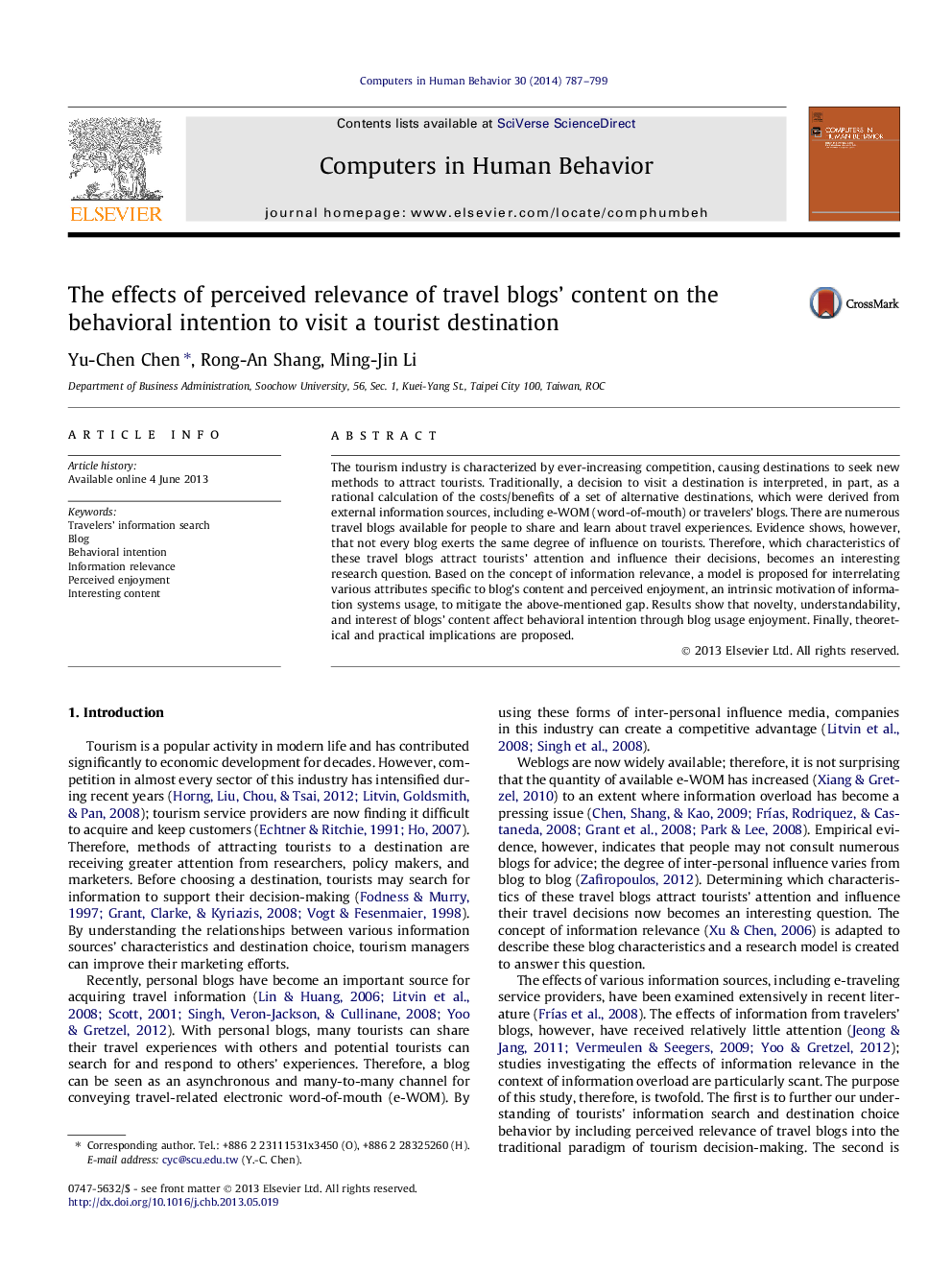| Article ID | Journal | Published Year | Pages | File Type |
|---|---|---|---|---|
| 350736 | Computers in Human Behavior | 2014 | 13 Pages |
•Blog, one type of e-WOM, is prevailing and impacts tourists’ decisions.•Relevant blogs information was asserted to affect destination decisions.•Interesting content was proposed as a new dimension of information relevance.•Novel, understandable and interesting blog content impact tourists’ intention.•Perceived enjoyment was found to be a mediator.
The tourism industry is characterized by ever-increasing competition, causing destinations to seek new methods to attract tourists. Traditionally, a decision to visit a destination is interpreted, in part, as a rational calculation of the costs/benefits of a set of alternative destinations, which were derived from external information sources, including e-WOM (word-of-mouth) or travelers’ blogs. There are numerous travel blogs available for people to share and learn about travel experiences. Evidence shows, however, that not every blog exerts the same degree of influence on tourists. Therefore, which characteristics of these travel blogs attract tourists’ attention and influence their decisions, becomes an interesting research question. Based on the concept of information relevance, a model is proposed for interrelating various attributes specific to blog’s content and perceived enjoyment, an intrinsic motivation of information systems usage, to mitigate the above-mentioned gap. Results show that novelty, understandability, and interest of blogs’ content affect behavioral intention through blog usage enjoyment. Finally, theoretical and practical implications are proposed.
